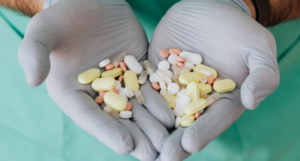National mentoring scheme supporting minority women in academic medicine

Mentoring minority women in academic medicine and health sciences was found to be critical for breaking down barriers and promoting equal opportunities, new study shows.
The Academic Intersectionality Mentoring in Medical Schools (AIMMS) initiative, led by the University of Southampton in collaboration with the University of Exeter, has been recognised for its success in supporting career progression and creating a more inclusive academic environment.
Evaluation findings, published in PLOS One, highlight AIMMS Mentoring’s effectiveness in fostering mentorship relationships, empowering participants’ personal and professional development, and addressing structural barriers to leadership. The scheme has been described as a “gold standard” initiative in Southampton’s Faculty of Medicine Athena Swan submission.
The AIMMS Mentoring initiative has expanded from nine to thirteen UK medical schools and has been available to all UK medical schools since 2024, through adoption by the Medical Schools Council.
Initially developed by the founding members and launched during the COVID-19 pandemic the scheme supported women from ethnic minority backgrounds in academic medicine and health sciences.
Co-author Nisreen Alwan, Professor of Public Health at the University of Southampton said: “We are delighted that the AIMMS Mentoring evaluation revealed that both participating mentors and mentees reported positive personal and professional development. It is so important to support under-represented groups in academic medicine and health sciences as diversity in leadership is likely to reflect in wider societal benefits particularly in relation to health inequalities.”
Mirembe Woodrow, Senior Research Fellow at the University of Southampton said: “AIMMS Mentoring’s uniqueness as a scheme available across all UK medical schools is a great strength as it helps women from similar backgrounds connect and find advice and support. Our evaluation informed further improvements to the programme, and I can see AIMMS Mentoring going from strength to strength in the future.”
Dr Musarrat Maisha Reza, Director of Equality, Diversity and Inclusion at the University of Exeter Medical School said: “We are incredibly proud to be a founding member of AIMMS, an initiative that is paving the way for more representative leadership, ensuring that women and underrepresented groups feel empowered to progress. This work is essential for driving long-term change and we hope to see its impact grow, fostering a more diverse and inclusive academia.”
AIMMS also involves collaborations with the Universities of Cardiff, Exeter, Leicester, Swansea, Leeds, Birmingham, St Andrews, Hull York Medical School and the Academy of Medical Sciences, tackling career progression inequalities
Professor Lucy Green, Faculty Athena Swan self-assessment committee Chair, and Associate Professor in Developmental Physiology at the University of Southampton said: “It is a beautiful idea which is clearly popular among the partner institutions and is effective in supporting career progression. We already knew the power of mentoring and allies, but the national nature of this scheme expands the scope of support, shared learning and experience in a really effective way.”
Meena Upadhyaya, an emeritus professor at Cardiff University, said: “It was a privilege for me to be one of the founding members of this initiative and to witness its successful development. This project embodies values like equality, representation, collaboration, mentorship, and cultural recognition in medical schools.”
Looking ahead, AIMMS Mentoring plans to extend its support to postgraduate students and additional intersectional groups.
The AIMMS Mentoring initiative is actively seeking both mentors and mentees. If you’d like to take part, visit Academic Intersectionality Mentoring in Medical Schools (AIMMS) | Medical Schools Council for more details.
The paper titled ‘I cannot be what I don’t see’: an evaluation of Academic Intersectionality Mentoring in medical schools (AIMMS Mentoring)’ is published on PLOS One.



